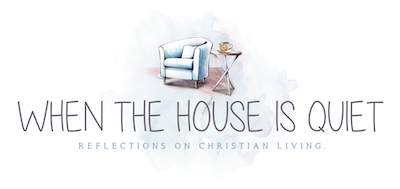Have you ever wondered what to share, how to share or even if you should share something? I have.
We see this paradox in Asaph. He authored Psalm 73 with a conflicted heart. He admits to being in a slippery spot in his faith. What he saw in the lives of others made him feel as though his belief in God had little consequence.
“My feet had almost stumbled; my steps had nearly slipped,” he said. (Ps. 73:2 NKJV)
If you are acquainted with Asaph’s story, you know what happened. If you aren’t or don’t remember, Psalm 73 is well worth the read. Asaph “went into the sanctuary of God” (verse 17) and everything changed.
As much as I love that part, I have always missed a previous verse leading up to it, an obscure piece of Asaph’s struggle. Asaph, in hindsight recognized how wrong it would have been for him to voice his doubts about God. Its effect would have been tragic.
“If I had said, ‘I will speak thus,’ I would have betrayed the generation of your children.” Ps. 73:15 ESV
A slippery slope of comparative injustice coiled within Asaph. He compared his life with the wicked. As a result he began to envy their lives and think things about God that were untrue.
Asaph hit a boiling-over point in his frustration and bitter resentment. His personal crisis, had he given it voice, could have spread to others like cancer.
Asaph is saying, “My message would have been deceitful, bāḡaḏ.” The original Hebrew indicates dealing which is deceitful, treacherous, or unfaithful.
“…I would have betrayed the generation of your children.” Other translations say, “been untrue” and “offend against.”
“Children” refers to son, grandson, or member of a group. Asaph’s silence was far-reaching in its spiritual consequence. Sharing his doubts would have also had wide ramifications.
When the time was right, Asaph’s testimony attested to God’s faithfulness.
We are a community who need one another. We should share burdens, encourage and help each other face and overcome temptations and trials.
Paul the Apostle admonishes us in his letters to build up one another, edify, and speak the truth in love. The Bible is full of examples that show times we must speak up.
However there is also a need for shut-your-mouth discipline, and the Spirit-filled discernment to know when to openly speak and when to wait.
Asaph’s complaint in the first part of the chapter questioned what God had revealed through his law. He incorrectly focused through a human lens. His initial turmoil showed self-pity. The core of his thoughts and emotions centered on himself. Had he vented his frustrations then, he would not have proclaimed truth, edified others, or expressed his own humble need.
There have been many times in my life when I’ve had an icky feeling of having said too much, of wishing I had kept my mouth shut or thinking it would have been better had I not shared what I did. Even in the safest context, what to share and what not is tricky.
These questions may help you consider when sharing is appropriate.
- Why am I sharing?
- Is it God-honoring?
- Is it true?
- Am I accurately portraying God?
- Is it coming from a place of pride or humility?
- Will it build up the body?
Asaph recognized his close call with betrayal or untruth would have been disloyal to God’s justice and His past actions. The Psalmist broke his silence on the other side of God’s inward transformation in his life, and it honored God.
When I consider my children, grandchildren, and “the generation of God’s children,” I desperately want to portray Him accurately through my history.
Honesty is in the DNA of the Psalms. The authors unveiled a world troubled with grief and pain, yet balanced with truth. They admitted doubt and confessed sin. Their witness spoke of a faithful God able to quell doubt and carry His children close to His heart from one generation to another.


J.D. Wininger
Great reminder that sometimes the wisest thing to do, or say, is nothing.
Sylvia A Schroeder
A bit of tape across my lips could be useful at times. Thanks J.D. I always appreciate your comments!
Brenda Griswold
Great devotional! I love Asaph! I have thought it should be a name used by Christians for their children. He was responsible for praise to the Lord. What a big responsibility and wonderful job! I’m sure because of such responsibility, he needed to reflect on what came from his mouth…. As I do too!
Sylvia Schroeder
I know! He is one of my favorites. So real. And so full of worship. Thanks Brenda. I love hearing your thoughts!
Elizabeth Daghfal
I just talked about this very thing with my small group last night. The thing is, with social media, it’s even easier to do irrevocable harm. Thirty, forty years ago, if you had doubts, you could express them to one or two people. They could come alongside and help you come to truth. But today, the moment we have a thought, we throw it up for the entire world to see. An entire world impacted. Now, tomorrow, we may wake up and feel different. After all, that’s what human emotions are like. But we’ve already done the damage.
I love your six questions to ask. My frequent prayer? “Lord, keep one arm around my shoulders—and the other one over my mouth.” 😉
Thanks for the great reminder.
Sylvia Schroeder
Thanks so much for those comments! You are so right with social media there is another layer of possibilities to react quickly. I absolute love your prayer: “Lord, keep one arm around my shoulders–and the other one over my mouth.” I can certainly echo that one! Thanks for reading and I so appreciate your response!
Marcy Giesbrecht
So good Sylvia! Great check list! My go to verse is Ps. 141: 3 Set a guard, O LORD, over my mouth; keep watch over the door of my lips!
Sylvia Schroeder
I should have included that verse. It is perfect! Thanks for bringing it to my attention, for reading it and adding to the conversation!
Don Pahl
Thank you, Sylvia.
Psalm 73 has become one of my favorites, especially the perspective change in the presence of God.
I fear far too often that your question #6 isn’t used much or even thought about today and it has brought much damage to the Church and churches.
Appropriate and timely reminders, Sylvia!
Don
Sylvia Schroeder
“Will it build up the body?” Yes it is a sobering thought, isn’t it? It is an ongoing learning curve as life happens. What a transformation it would bring the church to really practice it! Thanks so much Don. Always honored to have you weigh in.
Candyce Carden
Shut my mouth discipline. I’m convicted because just this week I went a little too far when talking about an issue with my daughter. When the result wasn’t exactly what I wanted, I gave it to God and told Him I’d trust him with with my daughter and the issue. Instead, the following day my mouth opened and the result wasn’t a good one.
I appreciate this post and the lesson it teaches me. Thank you, Sylvia.
Sylvia Schroeder
Thank you so much for sharing that Candyce. I am glad I’m not alone. It is just so difficult to have that shut my mouth discipline. Thank you for reminding me that giving it to God is the best solution.
Katherine Pasour
Sharing information is tricky. Your checklist is right on target. People often confuse gossip with news. My guideline is that we should not share if the information doesn’t honor God’s will for us and could (in any way) cause harm to the people we are sharing about (even ourselves). Just because something is true, doesn’t mean it needs to be shared. As J.D. says, sometimes we just need to say nothing. Thanks for focusing on this important, but often ignored, topic.
Sylvia Schroeder
Katherine, I always appreciate your input. I agree, if the information doesn’t honor God’s will for us and could cause harm to the people we are sharing about, it doesn’t need to be shared. Good insight and a great guideline. Thanks!
Jan Puffenberger
Thank you, Sylvia. A great reminder. I heard one of the ladies in my small group share that she always asks herself three questions when responding to someone,
1. Does it need to be said?
2. Does it need to be said now?
3. Does it said by me?
I believe I will employ Elizabeth’s prayer!
Sylvia Schroeder
Jan, those are great questions. 1. Does it need to be said? 2. Does it need to be said now? 3. Does it need to be said by me? Those three considerations could stop me from a lot of regret! Thanks. And yes, I agree, Elizabeth’s prayer was a winner!! Thanks so much for reading and giving such great advice!
Nancy E. Head
May we always honor God in all we think, say, and do. Great post, Sylvia! God bless!
Esther
Thank you for sharing this message with us. We need wisdom from the Lord to know when to be silent and when to speak. When He leads us to speak, we need to pray for wisdom to speak the truth in love.